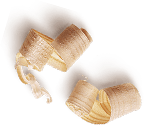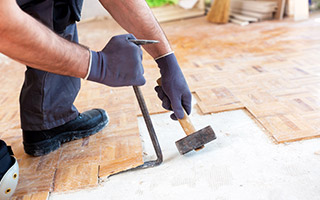

Disinfection for Households: How to Disinfect Your Home or Office
There are different levels of cleanliness (or sanitization - check out our last article) we can have in our homes. There's your everyday clean, a more thorough clean when we invite guests over, and then there is coronavirus clean. To disinfect your home or office properly, it would help to start at the beginning and understand what disinfection means.
Disinfection is the use of a chemical or physical agent to kill, remove, or stop the reproduction and growth of harmful microorganisms on a surface or object. The chemical agents used for this are referred to as disinfectants and antiseptics. Disinfection is most appropriate for often touched surfaces that have a higher chance of harboring viruses and pathogens.
The Difference Between Cleaning And Disinfecting
Cleaning is the act of removing dirt, soil, and other visible debris from an object. Before you disinfect a surface, it's important to first clean it using soap and water or other household cleaners to remove all dirt and grime. Since disinfecting a surface is just the act of killing the microorganisms, you can have a disinfected surface that still contains visible debris and dirt, but you can't be sure that the area under the dirt is truly disinfected. First rule is that you should clean before you disinfect.
Levels Of Disinfection
There are three levels of disinfection: low-level disinfection (LLD), intermediate-level disinfection (ILD), and high-level disinfection (HLD).
They are characterized by the type of disinfectant used:
- Low-Level Disinfection - kills some vegetative bacteria and viruses. EPA-registered disinfectant wipes and quaternary ammonium compounds (quats) fall into this category of disinfectants.
- Intermediate-Level Disinfection - kills most microorganisms, viruses, and all fungi. The chemical disinfectants used for this need to be EPA-registered as "tuberculocidal." The most common types of disinfectant solutions used include quat and alcohol blends, bleach (for fabrics), as well as bleach and hydrogen peroxide blends. Intermediate-level disinfectants require extra care when handling and the use of protective equipment.
- High-Level Disinfection - kills all vegetative microorganisms, viruses, and some bacterial spores. These types of disinfectants generally require a contact time of 10 to 30 minutes and are usually used in health-care settings. They are typically a blend of peracetic acid and hydrogen peroxide or a combination of bleach and hydrogen peroxide. Special care is required when handling these products.
The Importance Of Disinfection
With the worldwide outbreak of Coronavirus and no vaccine against it, it is important to use all protective measures available to minimize our exposure to this infectious disease. Washing our hands often for at least 20 seconds, keeping our distance from others, and wearing face masks and gloves are now common knowledge and are all important measures. However, when it comes to keeping our living and working spaces free of COVID-19 germs, there are other important protective measures to consider.
Coronavirus is transmitted primarily through small airborne droplets generated when an infected person sneezes, coughs or even speaks. These droplets contaminate any surface they land on and can remain there for several hours and sometimes even days. All it takes to become infected is to touch a contaminated surface and then touch your eyes, nose, or mouth. That is why disinfecting any surface that could be contaminated like high touch surfaces, is so important in reducing our exposure to COVID-19 and keeping us healthy.
How To Disinfect Your Property
There are various ways you can go about disinfecting your house, office, or vehicle. For frequently touched surfaces, the CDC recommends the use of bleach diluted with water. If you don't have bleach, you can also use rubbing alcohol as long as it's at least 70% alcohol. Unlike bleach, rubbing alcohol already comes diluted and must be used as-is from the store without diluting it further.
Non-porous floors like glazed tile and vinyl should be mopped with a bleach solution as recommended by the CDC. If you have hardwood floors installed in your property, it's important to avoid using bleach on your wood floors or other porous materials since it causes staining. Such materials need to be disinfected with a solution that doesn't use bleach.
Difference Between Disinfection And Sterilization
Disinfecting and sterilizing an object or surface are two very similar decontamination processes but they mean slightly different things. Disinfection is the elimination or removal of practically all pathogenic microorganisms, except for resistant bacterial spores. Sterilization is the process of killing all forms of microbial life (both harmful and harmless) including bacterial spore forms.
Sterilizing an object requires an extreme physical or chemical process and is mainly done in hospitals on any medical tool that penetrates intact skin and contacts with blood. Hence, when it comes to getting rid of viruses and bacteria from your home or business, disinfection is a more appropriate process.
Professional Disinfection Services
Disinfecting frequently touched surfaces and objects is one of the most effective methods of protecting ourselves from the impacts of Coronavirus. However, trying to treat a large open area like an office space or your entire house is difficult and time-consuming. To help protect your loved ones and employees during this pandemic, Hardwood Revival is now offering professional disinfection services in the DC, Virginia, and Maryland areas.
We use an electric ULV cold fogger which aerosolizes the disinfectant into tiny droplets, making it the perfect solution to treat large areas quickly. The disinfectant we use is called Sporicidin, it's EPA-registered and meets criteria for use against COVID-19. Sporicidin was originally designed for use in hospitals and is non-toxic, fragrance-free, allergen-free, and completely safe. The fogging method of application and the non-corrosive disinfectant solution we utilize in our disinfecting service will not damage your hardwood floor or any other porous materials you may have in your property.
Do you have any questions about our professional disinfection service for both commercial and residential properties? Would you like to find out more about the other services we provide like wood floor refinishing, repair, or hardwood floor installation?
Please give us a call today at 888-647-2123.

